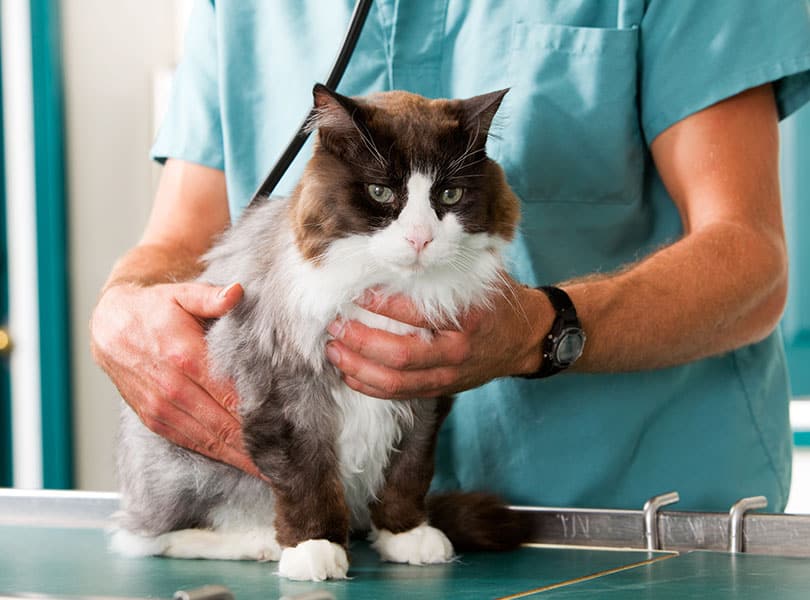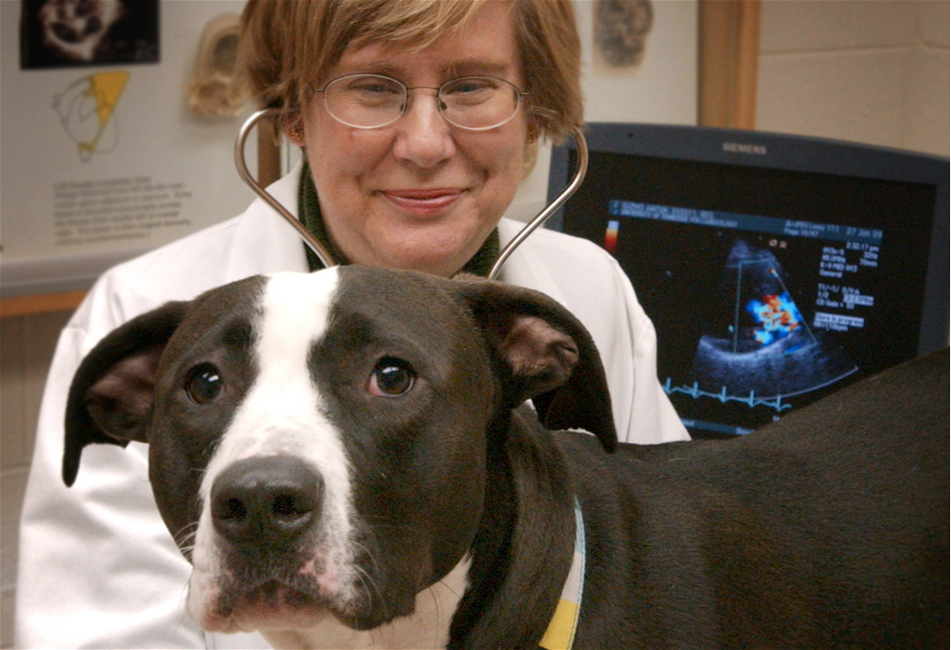Benefits of Early Diagnosis With a Board Certified Veterinary Cardiologist}
Checking Out the Vital Services Offered by a Vet Cardiologist: Comprehending Ultrasound and CT Scan Techniques
Vet cardiologists play an important duty in the health and wellness of family pets by diagnosing and dealing with numerous heart disease. They make use of sophisticated imaging methods, such as heart ultrasound and CT scans, to supply accurate analyses. Each technique has its distinct advantages and applications. Comprehending these techniques is crucial for animal proprietors seeking the ideal care for their companions. What aspects should pet owners take into consideration when choosing in between these analysis tools?

The Role of Veterinary Cardiologists in Animal Medical Care
Vet cardiologists play a vital role in the healthcare of pets, concentrating particularly on identifying and treating heart-related conditions. They have specialized training that permits them to analyze intricate analysis examinations and determine different cardiovascular issues. These specialists make use of innovative strategies, such as echocardiography and electrocardiography, to assess heart function and structure accurately.Veterinary cardiologists also create customized treatment plans that might consist of drugs, way of living alterations, and, in many cases, surgical treatments. Their proficiency extends to educating animal owners about heart health, emphasizing the importance of routine examinations and early discovery of possible troubles. Partnership with general vets is important, as it guarantees complete treatment for animals with thought cardiac concerns. By supplying specialized solutions, veterinary cardiologists significantly enhance the quality of life for pet dogs and supply comfort for their owners, reinforcing the relevance of heart health and wellness in general animal health.
Usual Cardiac Issues in Pet Dogs
Usual cardiac issues in pet dogs can considerably affect their health and lifestyle. Heart whisperings, different types of cardiomyopathy, and genetic heart flaws are among one of the most common conditions that vets experience. Board Certified Veterinary Cardiologist. Understanding these problems is important for pet dog owners to guarantee prompt diagnosis and proper treatment
Heart Murmurs in Pets
Although heart whisperings can be a source of problem for animal proprietors, they are not always a measure of major health problems. A heart murmur is an uncommon sound generated by unstable blood flow within the heart. In animals, these murmurs can be triggered by different variables, consisting of congenital heart problems, valve concerns, or even tension throughout assessments. Several pets with heart murmurs lead normal lives without considerable wellness impacts. To identify the underlying reason, vet cardiologists frequently utilize analysis strategies such as echocardiograms and Doppler ultrasounds. Early detection and analysis are essential, as they may assist handle any kind of potential cardiac problems properly. Pet proprietors are urged to consult their vet for a detailed examination if a heart whispering is identified.
Cardiomyopathy Types Explained
Cardiomyopathy encompasses a group of conditions affecting the heart muscular tissue, bring about jeopardized heart feature in pet dogs. One of the most usual kinds consist of expanded cardiomyopathy (DCM), hypertrophic cardiomyopathy (HCM), and limiting cardiomyopathy (RCM) DCM mostly affects canines, triggering the heart to expand and deteriorate, which lessens its capacity to pump blood successfully. In contrast, HCM is extra widespread in felines, characterized by the thickening of the heart walls, frequently causing blocked blood flow. RCM, though much less common, takes place when the heart muscle mass becomes inflexible, limiting its capacity to loaded with blood. Each type presents special difficulties in medical diagnosis and therapy, requiring specialized veterinary cardiological assessment to guarantee peak administration and look after affected pets.
Hereditary Heart Issues
Genetic heart problems represent a significant classification of heart problems in family pets, distinct from acquired problems such as cardiomyopathy - CT Scans For Animals. These problems are architectural abnormalities present at birth, influencing the heart's typical function. Usual types include license ductus arteriosus, ventricular septal problems, and pulmonic constriction. Symptoms may differ commonly, ranging from light to serious, and can include workout intolerance, coughing, and problem breathing. Early medical diagnosis through sophisticated imaging techniques like ultrasound is necessary for efficient monitoring. Veterinary cardiologists play an important role in identifying these problems and recommending suitable treatment options, which may consist of clinical administration or surgical treatment. Acknowledging congenital heart issues permits far better results and boosted top quality of life for impacted pet dogs
Understanding Cardiac Ultrasound: How It Works
A significant number of veterinary methods currently utilize heart ultrasound as an essential analysis device for assessing heart health and wellness in animals. This non-invasive method utilizes high-frequency acoustic waves to create pictures of the heart's framework and function. Throughout the procedure, a vet technician uses a gel to the animal's chest and uses a transducer to release ultrasound waves. These waves jump off the heart and bordering frameworks, generating real-time images on a monitor.Veterinarians can evaluate numerous elements of cardiac health, consisting of chamber dimension, wall movement, and valve function. Additionally, heart ultrasound permits for the discovery of problems such as fluid accumulation and hereditary heart problems. This strategy is crucial for detecting problems that might not show up with conventional radiographs. By giving detailed information about the heart's anatomy and efficiency, heart ultrasound aids in developing efficient treatment strategies for animals struggling with heart illness.
The Relevance of CT Scans in Diagnosing Heart Issues
How do CT scans boost the diagnosis of heart disease in veterinary medication? CT scans offer thorough cross-sectional pictures of the heart and surrounding structures, permitting vets to picture intricate physiological connections. This imaging strategy is particularly valuable in determining hereditary heart issues, heart tumors, and problems in blood vessels. By utilizing sophisticated imaging algorithms, CT scans can examine heart chamber dimensions and function, providing a comprehensive sight that might be challenging to attain with conventional methods.Additionally, CT angiography can visualize blood circulation and recognize locations of constriction or obstruction, which is vital for planning potential treatments. The speed and accuracy of CT scans additionally promote quick medical diagnoses, essential in emergency situations. Eventually, the unification of CT checks into veterinary cardiology greatly enhances the accuracy of diagnoses, allowing targeted therapy strategies and enhancing client results for pets struggling with heart disease.
Contrasting Ultrasound and CT Check Methods
While both ultrasound and CT scans are very useful tools in veterinary cardiology, they supply unique advantages and constraints that affect their usage in detecting heart disease. Ultrasound, or echocardiography, offers real-time imaging of the heart's framework and function, enabling veterinarians to analyze heart chambers, valves, and blood flow. It is particularly effective for reviewing problems like congestive heart failing and cardiomyopathy. Ultrasound may be limited in envisioning particular anatomical structures due to client size or obesity.In comparison, CT scans offer thorough cross-sectional photos of the heart and bordering tissues, making them perfect for identifying architectural problems, tumors, or vascular problems. CT scans supply comprehensive understandings, they call for sedation and might involve radiation direct exposure. Eventually, the choice between ultrasound and CT scans depends upon the certain scientific circumstance, the client's problem, and the info needed for an accurate medical diagnosis.
Treatment Alternatives Offered Through Veterinary Cardiology
Veterinary cardiology uses a range of therapy options customized to resolve various heart problems in pets. Treatment plans often begin with lifestyle modifications, consisting of diet regimen modifications and exercise adjustments, aimed at boosting total heart wellness. Medications play a crucial function, with cardiologists suggesting find this medicines such as diuretics, beta-blockers, and ACE preventions to handle symptoms and boost heart function.In extra serious cases, interventional procedures, such as balloon valvuloplasty or stent positioning, may be necessary to minimize clogs or boost blood circulation. For specific hereditary heart defects, medical alternatives might be discovered to remedy structural issues. Additionally, continuous monitoring and follow-up care are important components of a comprehensive treatment strategy, enabling timely adjustments based upon the pet's reaction to therapy. Generally, vet cardiology concentrates on offering reliable, customized treatment to maximize the wellness and wellness of pet individuals with heart conditions.
Exactly how to Prepare Your Family Pet for a Heart Analysis
Preparing a pet dog for a cardiac examination is important to guarantee exact outcomes and a smooth process. Proprietors should first set up the visit with the vet cardiologist and review any kind of certain needs or issues. It is advisable to keep food for a minimum of 12 hours before the analysis, as this aids improve imaging quality during treatments like ultrasound or CT scans.Additionally, maintaining a tranquil setting on the day of the appointment can help lower the pet dog's anxiousness. It is helpful to bring along any type of relevant medical documents, consisting of previous examinations and medicines (CT Scans For Dogs). Owners need to additionally make particular that their animal fits and leashed throughout transport to the clinic. Ultimately, acquainting themselves with the examination process can reduce worries and aid in asking notified concerns during the appointment. By following these steps, owners can contribute substantially to the effectiveness of the heart analysis
Frequently Asked Questions
How much time Does a Cardiac Ultrasound or CT Check Take?
The period of a cardiac ultrasound normally varies from 30 to 60 minutes, while a CT scan may take approximately 15 to 30 mins. Elements such as the client's problem can affect these time quotes.

Exist Any Type Of Threats Related To These Diagnostic Procedures?

Can I Keep With My Pet During the Treatment?
The vet facility's policy commonly determines whether pet owners can remain their website throughout procedures. While some facilities urge owner visibility for comfort, others may require separation to guarantee safety and ideal problems for analysis imaging.
Exactly how Much Do These Diagnostic Tests Generally Cost?
The expenses of analysis examinations, such as ultrasound and CT scans, normally differ based upon location and facility. Generally, prices vary from a few hundred to over a thousand bucks, showing the complexity and technology involved.
What Is the Healing Process After a Cardiac Examination?
The recuperation process after a cardiac analysis includes keeping track of the family pet for any prompt reactions, making sure comfort, and restricting exercise. Vets generally offer post-evaluation guidelines to guide family pet proprietors throughout this crucial recuperation duration. Heart murmurs, various types of cardiomyopathy, and genetic heart problems are amongst the most common conditions that veterinarians come across. A heart whispering is an uncommon audio created by unstable blood flow within the heart. Cardiomyopathy includes a group of diseases influencing the heart muscular tissue, leading to jeopardized heart feature in pets. Genetic heart defects stand for a significant category of heart check these guys out concerns in family pets, distinctive from gotten conditions such as cardiomyopathy. Ultrasound, or echocardiography, provides real-time imaging of the heart's framework and function, permitting vets to analyze heart chambers, shutoffs, and blood flow.